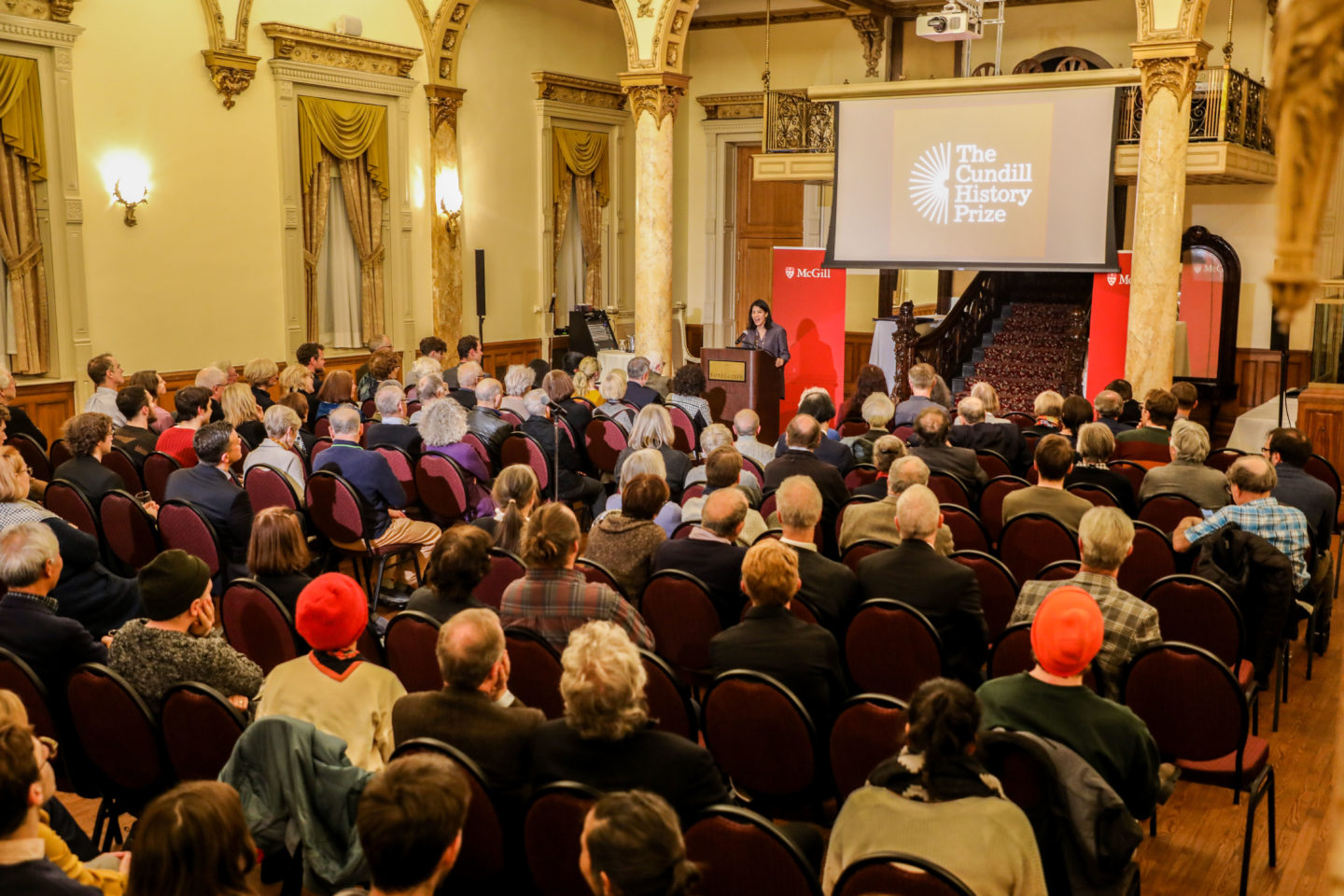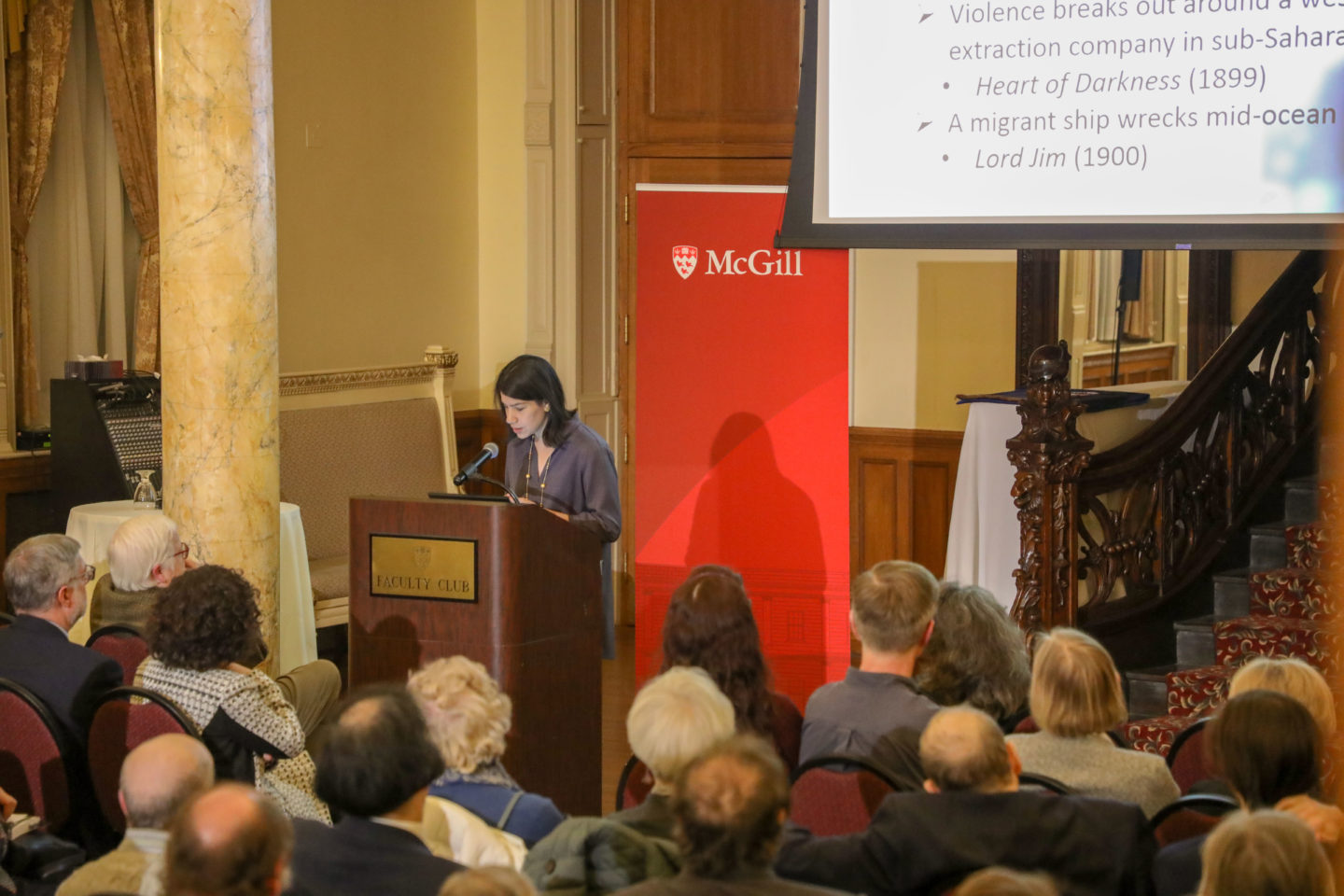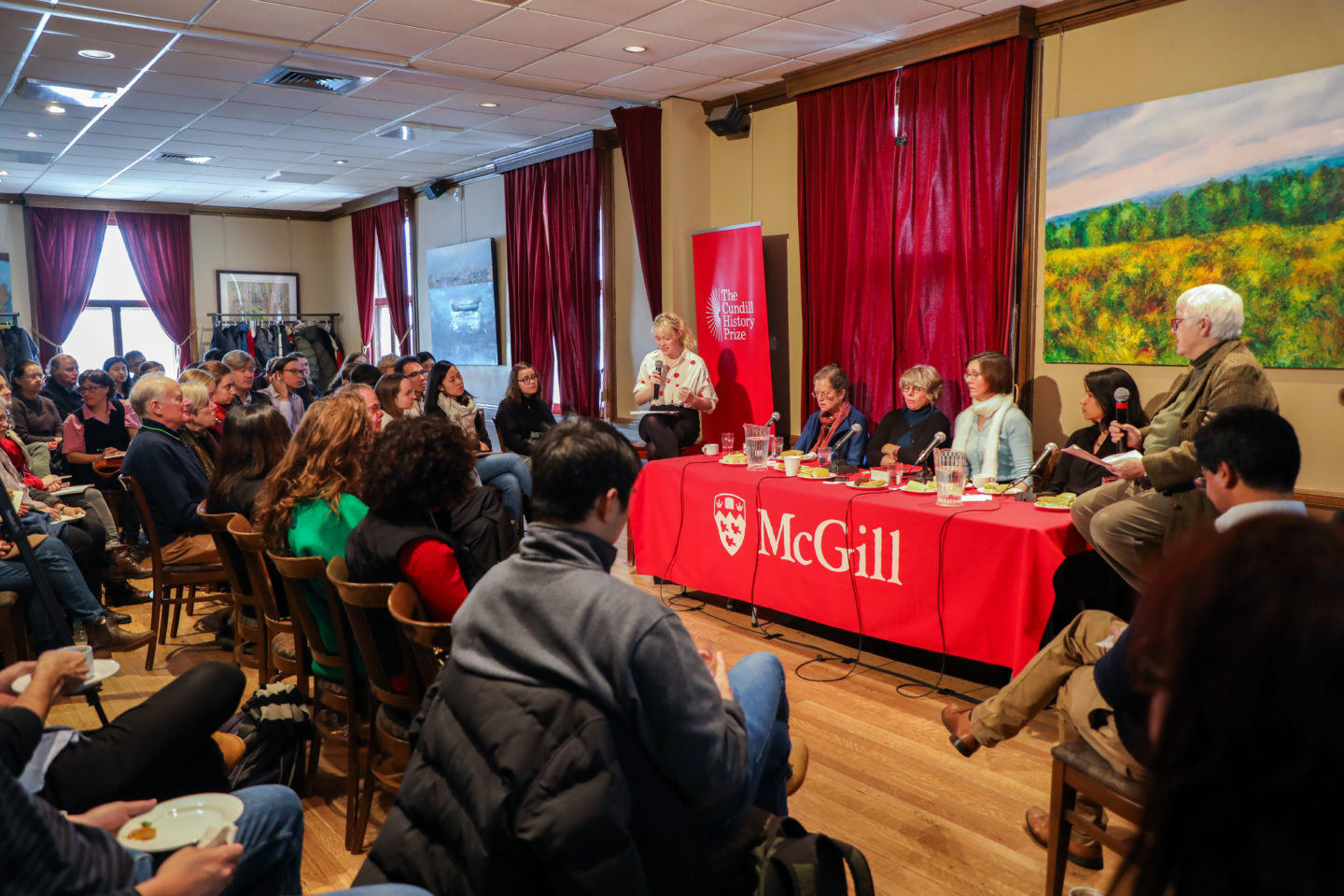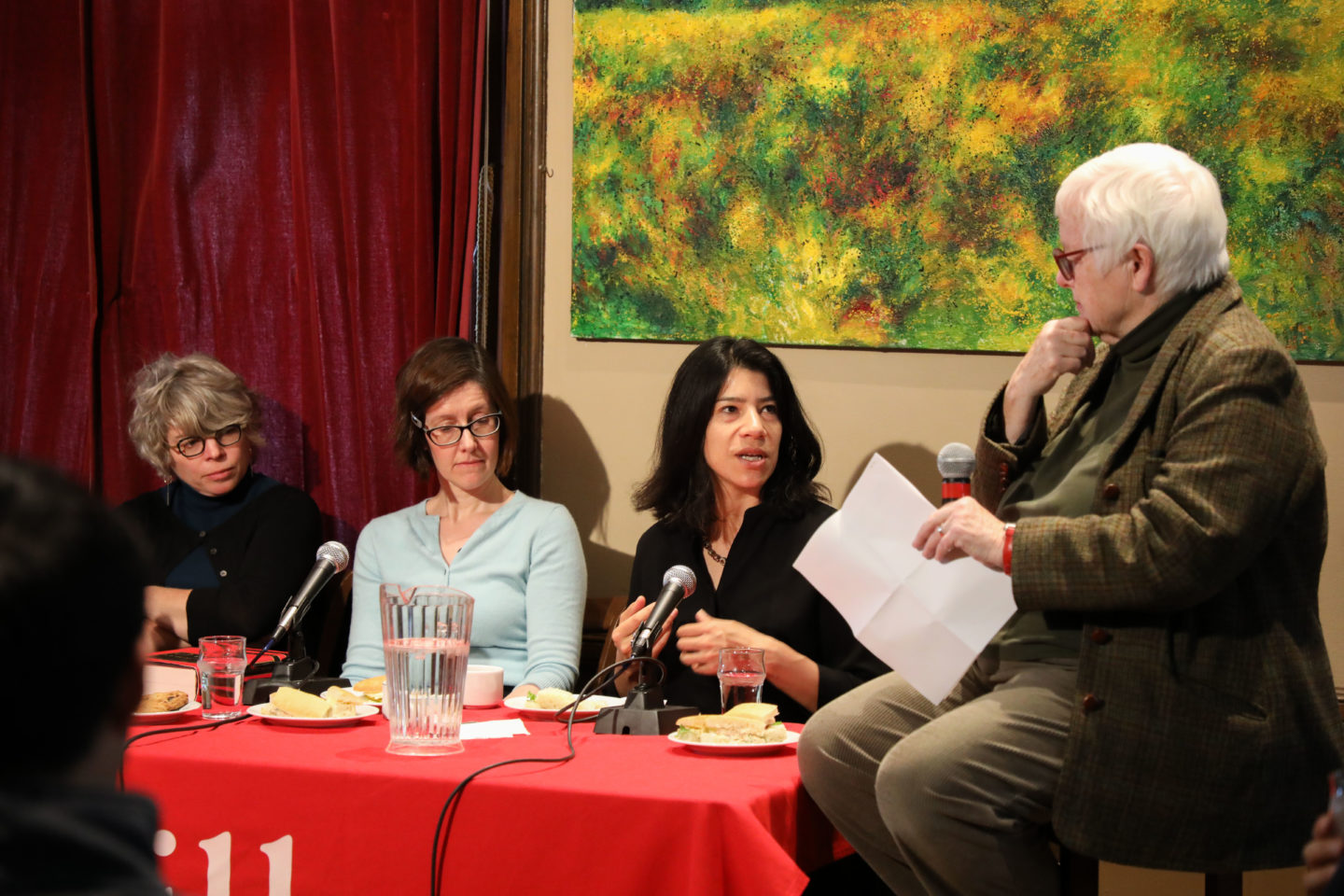November 22nd 2019 in News
A stage for the world's best history writing in Montreal
From the Cundill History Prize Lecture to the Cundill Forum, from the student-led Cundill Fringe to the Cundill History Prize Gala at the Museum of Fine Arts - for one week in November the Cundill History Prize provides a stage for the best history writing from around the world.
Cundill History Prize Lecture

Maya Jasanoff, winner of the 2018 Cundill History Prize for The Dawn Watch: Joseph Conrad in a Global World, delivers the 2019 Cundill History Prize Lecture at the Faculty Club, on the McGill campus.
Jasanoff explored how Conrad was deeply influenced by the dawn of the twentieth century — the tensions of global capitalism, encroaching imperialism and unprecedented migration which still characterize our global world. She followed in the footsteps of this prolific writer, journeying from East Asia to Europe on a cargo ship, and sailing 1,000 miles down the Congo River. This distinct experience flavors the pages of The Dawn Watch, much as Conrad's work is imbued with the familiar worlds of his travels.
READ MORE about the Cundill History Prize Lecture in this article in the McGill Tribune.

Cundill History Prize Forum

The first Cundill Forum, a panel discussion between the finalists and last year's winner. From left to right: Charlotte Frater-Scott, President of the History Student’s Association at McGill; Mary Fulbrook, finalist for Reckonings; Jill Lepore, finalist for These Truths; Julia Lovell, finalist for Maoism; Faith Wallis, Associate Professor at McGill.
The Forum was presented by the History Student’s Association of McGill, in collaboration with the Department of History and Classical Studies and the Cundill History Prize.
In the face of climate change denial and political distortions, many feel compelled to reassert the importance of 'hard' evidence. And yet, our knowledge of exclusion from the historical record and our post-modern sense of subjectivity make it difficult to lay claim to 'objective' truths. How do we navigate these tensions in a time overrun by deep fakes and deceptive, or blatantly false, information? How do we write history in the age of fake news?

Share this
Archive
2025: February (1) March (1)2024: February (1) March (1) May (1) August (1) September (2) October (2)
2023: February (1) June (1) September (1) October (1) November (1)
2022: March (1) June (1) September (2) October (1) December (1)
2021: February (1) April (1) September (2) October (1) December (1)
2020: February (1) May (1) September (2) October (1) December (1)
2019: March (1) June (1) September (2) October (1) November (2)
2018: April (1) June (1) September (2) October (1) November (1)
2017: May (1) July (1) September (1) October (2) November (1)
Recent Posts
2025 Cundill History Prize Jury announced as record number of submissions received
Kathleen DuVal wins 2024 Cundill History Prize for Native Nations
The 2024 Cundill History Prize Festival
The 2024 Cundill History Prize Shortlist
The 2024 Cundill History Prize Longlist
2024 Cundill History Prize Jury announced as submissions close for record year